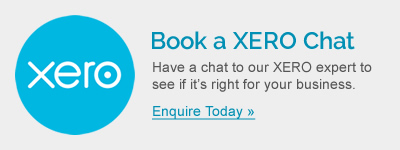Main Residence Exemption
In normal circumstances, the sale of a piece of property attracts CGT or Capital Gains Tax. However, what many people do not know is that they can avoid paying this tax if they are selling a piece of property that is their main residence. So, what is your ‘main residence’ and how do you determine whether you qualify for the tax exemption or not?
Principal Place of Residence
Is The Property I’m Selling My Main Residence?
In general, your main place of residence is your home. There are a few factors that the Australian Taxation Office or ATO takes into consideration when determining your main residence. Some of these factors include:
– Your aim or intention in occupying the property.
– Connections of crucial utilities and services such as electricity, water, gas, and telephone.
– Your electoral address.
– Your postal mail address.
– Whether your personal belongings exist in your main residence.
– Whether you and your family currently reside in the property.
It is good to note that there is no minimum duration that a person has to live on a given property so that it can be considered their main residence.
Now, in order to qualify for CGT exemption, the property you are selling must have a house or a dwelling within its boundaries. A house or a dwelling can be any structure that is deemed fit for accommodation or residential use.
Examples of houses or dwellings that qualify include:
– A typical home or cottage house.
– A caravan, houseboat or other common mobile homes.
– A housing unit in a retirement village.
– A strata title unit.
– A flat or apartment building.
The mere intention of planning to build or set up a dwelling or main residence on a piece of property – without actually doing so – is not enough for you to qualify for CGT exemption. There must be a physical dwelling place which you occupy.
Can I Have More Than 1 Main Residence?
The law allows you to have only 1 main place of residence at any one time unless you are selling off your old residence and buying a new residence. When this is the case, you are normally granted a grace period of approximately 6 months as long as:
1. You occupied the old residence for at least 3 straight months within the 12 month period preceding the sale.
2. Your old residence was not used for rental purposes within the same 12 month period preceding the sale; and
3. The property you are buying will be your new main residence after you have finalized the sale of your old residence.
Can I Rent Out My Main Residence?
While you are only allowed to have 1 main residence at any given time, it is not mandatory for you to occupy the residence for the entire period that you hold ownership in order to qualify for CGT exemption. If you own a piece of property that you have listed as your main residence, it is possible for you to move out and rent it out for up to 6 years. During this period, you can earn rental income from your property and also claim a tax deduction as you would if you were actually residing on the property. You, however, must re-occupy the residence before the 6 year period elapses. You must also not sell the property within the same financial year in which you were earning rental income from the property in order to qualify for CGT exemption.
Does The Main Residence Concept Apply To Property Renovators?
Well – Yes! If you are an individual who wants to purchase a piece of property, occupy it while doing renovations and then dispose of it so that you can move into another property, any returns you make from the sale of the initial property and any other property that follows the same procedure is exempted from CGT.
Can I Subdivide My Property and still Qualify for the Main Residence Exemption?
So, when you subdivide a large block of land, it may not possible to have a dwelling or a house on each of the subdivisions you make. Tax exemption requires that a house or a home exists on the property being sold. Any profit from this sale would attract CGT.
However, for the reverse situation, where you purchase extra land and add it to your main residence, the main residence exemption will apply when you sell your entire piece of property as long as the total area of the land does not exceed 2 hectares.
What If I Can No Longer Reside In My Main Residence?
Well, the main residence exemption can still apply even when the property owner is not able to live on the residence because they have the lost ability to take care of themselves independently due to factors such as old age or chronic illness.




